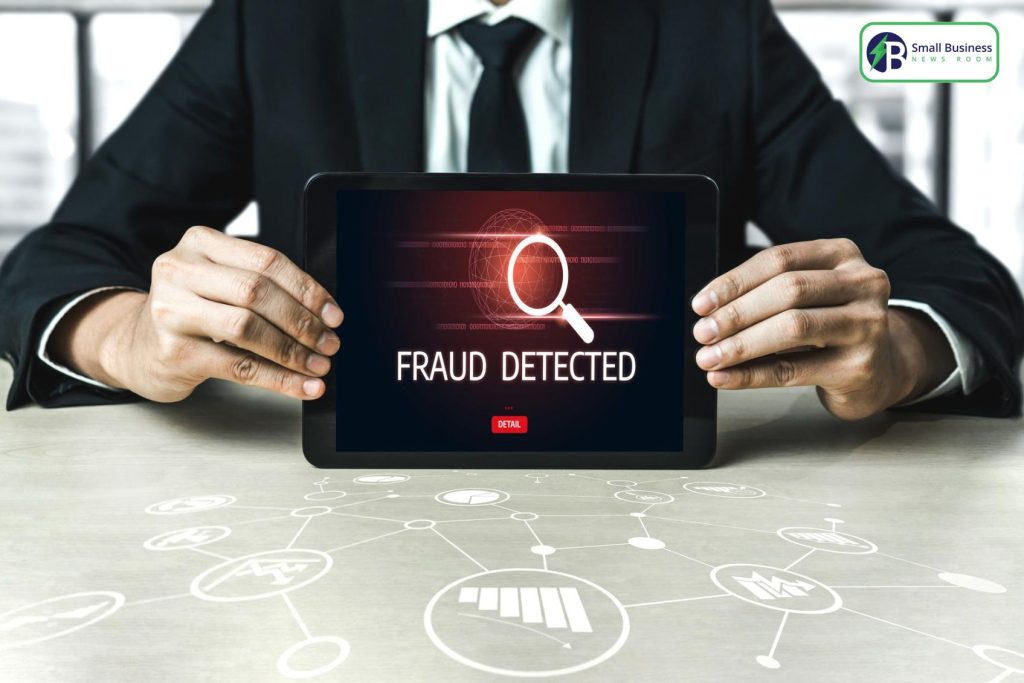Table Of Contents
- Implementing Anti-Fraud Strategies: A Brief Overview
- Why Is AI And Automation Important For Anti-Fraud?
- Effective Anti-Fraud Strategies That You Must Consider
- Implementing Multi-Factor Authentication
- Employing Machine Learning And AI
- Conducting Regular Risk Assessments
- Educating Employees And Customers
- Monitoring And Analyzing Data
- Partnering With Fraud Prevention Experts
- Enhancing Data Security Measures
- Nonprofit Credit Card Processing
- Implementing Blockchain Technology
- Prepare Your Combat Today Without Any Delay!
What Steps Can You Take to Develop Effective Anti-Fraud Strategies for Superior Security?
Last Updated on: September 17th, 2025
In this digital landscape, the fraudulent threats has become a huge issue among organizations across all kinds of industries.
Cybercriminals are continually evolving their tactics. This is what makes it essential for businesses to implement robust anti-fraud strategies to safeguard their systems and sensitive data.
In this blog post, we are going to explore all kinds of effective antifraud strategies that can strengthen systems while ensuring unparalleled security. This way, you too can stay a step ahead of the fraudsters.
Implementing Anti-Fraud Strategies: A Brief Overview

The rise in digitalization of work processes worldwide has led to improved communication and connectivity. However, it also led to higher rates of digital fraud.
These days, cybercriminals are making full use of technology to target individuals, businesses, and governments. Hence, this has become a significant concern for most sectors worldwide, particularly finance and e-commerce.
Since there is easy access to a significant amount of tools and data online, it has become simpler for cybercriminals to perform digital fraud.
Furthermore, after the pandemic, the rapid shift to digital platforms has contributed more to the issue. Hence, digital criminals have a greater chance of exploiting vulnerabilities in systems.
Hence, businesses and organizations need to implement anti-fraud operations and strategies to secure their systems.
Dealing with fraud operations involves overarching management and prevention techniques.
Hence, anti-fraud has become a distinct field, encompassing various strategies and methodologies for addressing all types of fraudulent activities.
Anti-fraud has become a specialized area that operates within the online fraud orchestration framework, aiming to combat fraud with stronger and more secure systems.
The major goal is to streamline efforts and resources for safeguarding online transactions and financial systems.
With the advancement of technology and the introduction of AI into digital systems, traditional methods are gradually becoming obsolete.
Manual review techniques and rule-based systems are too slow to keep up with the constantly changing tactics of cyber criminals. Hence, there is a strong need for the implementation of AI to deal with digital fraud.
Why Is AI And Automation Important For Anti-Fraud?

The introduction of artificial intelligence in digital systems and technologies is helping to reshape anti-fraud operations and systems.
In such cases, AI can facilitate faster and more accurate data analysis, as well as aid in identifying patterns that lead to cyber fraud.
These systems also identify anomalies in systems more quickly, which can aid in detecting and addressing fraudulent activities.
Furthermore, with the rise of automation, companies and organizations are striving to minimize human intervention in their systems and processes.
This helps a lot in fraud prevention mechanisms. In the latter case, automation facilitates the efficient processing and analysis of large datasets within a short period of time.
Both AI and automation can help in the creation of powerful systems and tools. Moreover, they also help in real-time fraud protection.
Hence, it becomes close to impossible for malicious activities to happen. Additionally, AI also facilitates predictive analysis, enabling the identification of threats and vulnerabilities in systems more quickly.
The speed of response to fraud is the major factor that makes all the difference in today’s day and age.
Hence, systems and operations must leverage the capabilities of robust fraud operations and management.
The use of AI and automation can not only improve detection accuracy but also help in responding faster to suspicious events.
Effective Anti-Fraud Strategies That You Must Consider

In this section, I am going to talk about the major anti-fraud strategies that can help you to save your system while ensuring better security.
Implementing Multi-Factor Authentication
You can implement multi-factor authentication (MFA) to enhance your security while mitigating the potential risks.
This MFA can create an extra protection layer by providing two or more identification forms, such as:
- Password
- Fingerprint
- One verification code
This way, you can significantly reduce the unauthorized access. So, if ant one of the factor is compromised, the another authentication layer can prevent the fraudulent activities.
Employing Machine Learning And AI
Machine learning (ML) and artificial intelligence (AI) technologies have revolutionized fraud detection and prevention.
The machine learning algorithms can:
- Analyse a large volume of data in real time.
- Identifying the patterns and anomalies
- Detect the suspicious activities that strongly indicate fraudulent behavior
So, once you leverage ML and AI, an organization can easily:
- Automate fraud detection,
- Detect sophisticated fraud schemes,
- Take proactive measures to prevent potential threats.
Conducting Regular Risk Assessments
Conduct risk assessment daily. It helps in identifying all the vulnerabilities along with the entry points of potential fraud.
Organizations must stay proactive with the evaluation of the systems, processes, and controls. This way it becomes possible o identify all the weaknesses that could be easily exploited.
Furthermore, these assessments can also help to understand the overall fraud landscape while enhancing security measures. This way, you can also stay current with the emerging trends in fraud.
Educating Employees And Customers
Another effective anti-fraud strategy is to educate both your employees and customers. Both human error and lack of awareness can make the organization prone to fraud.
Thus, it is necessary to educate the employees and customers about:
- Security practices
- Common fraud activities and techniques
- How to spot potential scams.
You can also conduct regular training that can empower them to recognize and report all sorts of suspicious activities. This can further strengthen the overall security posture of the organization.
Monitoring And Analyzing Data
Effective anti-fraud strategies also include continuous monitoring and data analysis. Thus, it is necessary to monitor:
- Transactional data,
- User behavior
- System logs.
This way, organizations can identify irregularities and potential indicators of fraud.
On the other hand, the advanced tools can also help you detect patterns and anomalies. These are not always visible to the naked eye.
This can further enable organizations to take immediate action that prevents all possible fraudulent activities.
Partnering With Fraud Prevention Experts
You can also consider collaborating with the fraud prevention experts. They can provide specialised knowledge and expertise to combat fraud.
These fraud prevention experts can further help you to
- Implement robust prevention
- Conduct regular audits
- Stay updated with the latest fraud trends and countermeasures.
Once you partner with them, it becomes easy for you to enhance the organizational abilities to protect the systems.
Enhancing Data Security Measures
Data security is crucial in combating fraud. The organizations must include:
- Industry-standard encryption protocols,
- Access controls
- Secure networks to safeguard sensitive data.
The organizations can easily detect and mitigate the potential risks before they cause significant damage through:
- Regular data backups
- Disaster recovery plans, and
- Continuous monitoring of security systems.
Nonprofit Credit Card Processing
For nonprofit organizations, adopting secure credit card processing is a vital step in preventing fraud.
Electronic payments, including credit cards, are commonly used in donations and transactions, making them a potential target for fraudsters.
If you opt for an efficient and secure payment processing system, it can help you to:
- Validate all sorts of transactions
- Identify the suspicious activities
- Ensure that the donor information is properly encrypted and protected.
As for the nonprofits, they just choose a credit card processor. This helps you to adhere to PCI-compliant standards. Additionally, it becomes easy for the non-profits to ensure end-to-end encryption.
Moreover, this offers robust fraud management tools. This not only protects the organization from potential fraud but also builds trust among donors. As a result, you can ensure the donors feel safe when contributing to the cause.
Implementing Blockchain Technology
The blockchain technology is currently emerging as a potential tool for fraud prevention. It is properly decentralized. As a result, it would be easy for you to ensure that every single transaction is:
- Transparent
- Traceable
- Immutable
Moreover, this is making it difficult for fraudsters to manipulate or tamper with the data.
Wait! Blockchain can even do more! With the right blockchain technology, it becomes easy for you to automate your compliance checks.
This can further reduce the chance of a fraudulent transaction slipping through.
Prepare Your Combat Today Without Any Delay!
Fraud poses a significant threat to organizations in today’s digital era. Implementing effective anti-fraud strategies is crucial for strengthening systems and ensuring unparalleled security.
Organizations can significantly reduce the risk of fraud and protect their systems and sensitive information from unauthorized access by:
- Utilize multi-factor authentication,
- Employ machine learning and AI,
- Conduct regular risk assessments
- Educate employees and customers
- Monitor and analyze data
- Partner with fraud prevention experts
- Enhance data security measures















